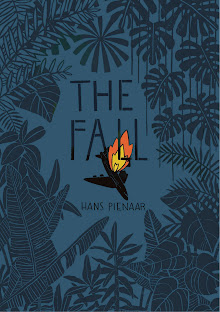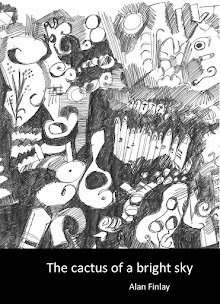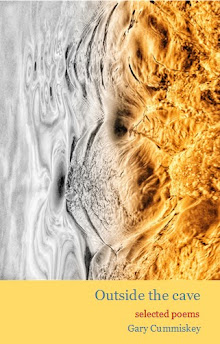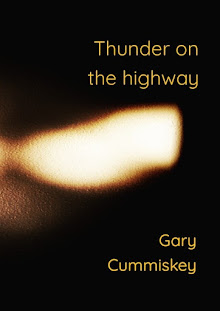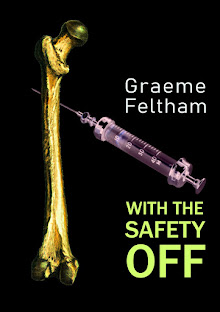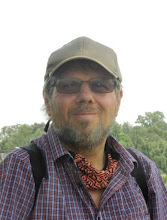
Philip Hammial was born in the US and emigrated to Australia in 1972. Two of his 20 collections of poetry have been shortlisted for a New South Wales Premier’s Award. He is also a sculptor and the director of The Australian Collection of Outsider Art.
GC: You were born in Detroit, but after graduating from university you travelled the world for 10 years then settled in Australia. It was a very different time and world travel seemed a lot easier to do. It was part of the whole counterculture scene. How did you relate to that, and why did you choose Australia in which to settle?
PH: At 12 I decided I wanted to see the world, this after reading the adventures of Colin Glencannon, Scot engineer on a tramp freighter; Richard Haliburton’s adventures & hearing Lowell Thomas’ radio reports on his trip into Tibet on foot shortly after the end of the Second World War. So when I graduated from high school I decided to get a job on a salt-water freighter only to discover I was too young. Telling a visiting uncle about this problem, he suggested I join the US Navy, which I did, the next day. Three years (1954-57) in the engine rooms of two ships, it was a great beginning.
I then went to college (university later) & spent two summers hitchhiking around Europe, staying in youth hostels & cheap pensions & reading the collected works of Nietzsche. My third trip (with my first wife) lasted two years. We went around the world for US$1000 each, $500 a year. The US dollar was very strong, & there were black markets in Turkey, Pakistan and India. Anyway, I’ve managed to travel in 74 countries for a total of 10 years – India (4 times), Tibet (twice), China (4 times), much of Africa.
I left the US f
 or the last time in 1969 for two reasons; to travel & because I was totally disgusted with the domestic security & foreign policies of the US government &, needless to say, still am. After living in Bali for a year (money almost gone & not possible to again renew our visas) we flipped a coin – Japan or Australia – to see where we would go to work. Tails, we arrived in Australia on tourist visas in 1972 with $100 between us.
or the last time in 1969 for two reasons; to travel & because I was totally disgusted with the domestic security & foreign policies of the US government &, needless to say, still am. After living in Bali for a year (money almost gone & not possible to again renew our visas) we flipped a coin – Japan or Australia – to see where we would go to work. Tails, we arrived in Australia on tourist visas in 1972 with $100 between us.A predictable question: when did you start writing and why? I’m curious about your work in sculpture. You said this started up when you had a broken leg and was stuck at home. Why sculpture and not other visual art forms?
Having had a successful career as a juvenile delinquent and three years in the navy (where I came to the realisation that I was a pig-ignorant fool & probably headed for prison) I managed, in spite of my poor high school grades, to get admitted to a small college in Michigan. It was there, thanks to some inspiring teachers, that I started writing poetry, plays, short stories & a novel as well as painting & playing a sax. Couldn’t do it all, so eventually settled on poetry & sculpture. Yes, the broken leg, in three pieces. In plaster from one foot to armpits & taking painkillers, I was too groggy to write poetry. A compulsive creator, what to do? One day my mates loaded me into my Plymouth sedan & took me to a tip where, with me pointing to objects, they filled the boot, then spread all of those wonderful bits & pieces over a big table in the basement of our house in San Francisco. Hobbling around on crutches, three or four months later I had 40 pieces of sculpture. Not sure why sculpture, probably because I discovered I’m not much of a painter. Also, like poetry, I can make a piece of sculpture in one hit – an hour or two & it’s done.
You started up Island Press in the middle 1970s – what is your experience of publishing in Australia? What is the attitude of commercial publishers towards poetry?
Publishing poetry in Australia is a mug’s game. One would have thought after all these years that I’d have smartened up & done something worthwhile. I think I finally have – no plans for any further publications. Since the time of Bob Hawk, both Labour & the Liberals have been cutting funding to the arts, with poetry right at the bottom of everyone’s priorities. In any case only a handful
 of Australians read poetry. Most of my friends are visual artists & musicians & only two or three of them have poetry books on their bookshelves. What hope for the rest of the population?
of Australians read poetry. Most of my friends are visual artists & musicians & only two or three of them have poetry books on their bookshelves. What hope for the rest of the population?I’d guess that only one in ten thousand homes would have even a single volume of poetry tucked away on a bookshelf.
We’re a nation of sports spectators. With four or five exceptions, finding a book of Australian poetry in a Sydney bookshop is like finding a needle in a haystack. If, as a person from a small poetry press (not a bona fide rep), I walk into a bookshop in Sydney with books to sell I’ll be out the door before you can say Jack Robinson. Island Press had a distributor for three years. That distributor was worse than useless & took a 65% cut. In the whole of Australia there are, as far as I know, only four distributors that will touch poetry, all of them useless. The large Australian
publishers no longer publish poetry; there’s no money in it.
What are your feelings about literary journals in SA that you have seen? What are literary journals like in Australia?
I’ve only seen Green Dragon & Carapace. As I know that you & Gus are publishing on a shoestring you have my sympathy & respect. Literary journals in Australia cover the whole range from elegant to awful, from journals with very good writing to very bad writing. The big academic journals keep battling on. Most of the small magazines have gone under for the reasons listed above, many of them only lasting for one or two issues. To get funding for a magazine from the Literature Board one must prove that one has at least 500 (if I remember correctly) subscribers, a very difficult if not impossible task.
Many small publications in SA are dependent on funding of some sort, whether public or corporate funding. Corporate funding can be a bit dodgy as the companies are likely to want marketing leverage, which risks interfering with the publisher’s integrity. However, obtaining government funding isn’t always that easy, either. What is the situation with regards to funding in Australia?
I can’t think of a poetry publisher who would even think of approaching the private sector for funding. It would be a waste of time. Australian companies aren’t known for their generosity. A few support sports, but the arts ... It’s possible to get subsidies for poetry from the Literature Board of the Australia Council if one has a good track record. Island has received several subsidies over the years, from AUS$500 to $2500 per title for up to four titles. Today it costs about $2300 to publish 500 copies of a good quality 80-page book with a two- or three-colour cover. A book of poetry now costs about $20. Why would anyone buy 80 pages of poetry when one can have a 300-page novel for the same price? As I said above, the federal government only just supports the arts (the Australia Council) & most of that funding goes to the Opera House. Poetry gets the crumbs. By way of contrast, the government of France devotes 4-point something of its annual budget to the arts. Australia? – less than 1%.
A concern in SA is the issue of poetry audiences – how poetry should be shared with an audience. Poetry performance is popular, with the emphasis on active engagement with a physical audience – not the same as publishing a book of poems and hoping someone will read it. You have had texts set to music by Australian world musician Colin Offord; in a sense, this is like poetry returning to its origin, with its basis in song, not as words on the page.
I’m all for getting poetry out to an audience by any means – performance, books, CDs. But Australian poetry audiences, unlike audiences I’ve experienced in Durban, Tokyo, Paris, NYC and Quebec, are usually small, very small, & lazy. To get through to them one must spoon-feed them pabulum. And don’t expect any feedback, positive or negative, after a reading. Much too cool & sophisticated. Australian poets are terminated by indifference. As for performance poetry in Australia: the few performances I’ve seen have been by testosterone-driven adolescents, not my cup of tea.
Your poetry shows the influence of surrealism, and the blurbs on your books usually refer to the influence, but you have said to me you dislike the label, because
.jpg) in Australia the critics use it as an excuse to classify surrealist, or surrealist-inspired, work as outdated. I’m not sure if the situation is different anywhere else in the world, but at the same time it also hints as an establishment conspiracy against any work that is prepared to take risks with language and challenge the status quo.
in Australia the critics use it as an excuse to classify surrealist, or surrealist-inspired, work as outdated. I’m not sure if the situation is different anywhere else in the world, but at the same time it also hints as an establishment conspiracy against any work that is prepared to take risks with language and challenge the status quo.I’m not a fan of conspiracy theories; but, yes, I dislike the label because (A) surrealism as a movement was officially disbanded in 1967, (B) I don’t practice automatic writing or play surrealist games & (C) it allows my poetry to be dismissed – don’t read Hammial; he’s a surrealist, i.e., difficult, incomprehensible. Australians, like most people, are deeply conservative. And so are most of our poets. We’re still basically a colony. We still kowtow to the Queen of England. We still suffer from the Great Cringe (if it comes from overseas it’s better) and the Tall Poppy Syndrome (stick your head up above the crowd & it will be cut off).
This may explain why 98% of Australian poetry is derivative, based occasionally on a British model & usually on a US model – Iowa, Black Mountain, NY, New Lyric, L*A*N*G*U*A*G*E, etc. Our poets, especially the males who fear ridicule from their mates, play it safe, very safe. Where is the excitement, the journey, the sense of adventure? Not here. Also, for whatever reasons – the old copyright laws, high cost of books, lack of information – only a handful of Australian poets have done any in-depth reading in the original or in translation of poets who write in languages other than English.
Your poetry is often a collage of elements: bits of autobiography, word play, but also social comment and political criticism. Your poetry clearly engages with the world around you, dealing with your concerns about the environment, violence, abuse of power and political manipulation. What is your approach when writing?
As a young poet I wrote most of my poems in what might be described as a deep trance, much thrashing about, 20 to 30 poems in one one-hour session. Now, in my dotage, I’m lucky to get two poems from a light trance. In any case, most of my poetry comes from the unconscious or, if that term is proble
 matical, from the subconscious. There’s little or no conscious input. The social commentary, autobiographical bits, word play, etc. simply come up with the rest of the material. That said, most of my prose poems are consciously made, usually in two or three minutes.
matical, from the subconscious. There’s little or no conscious input. The social commentary, autobiographical bits, word play, etc. simply come up with the rest of the material. That said, most of my prose poems are consciously made, usually in two or three minutes.A few years back you published a book of prose poems, Swan Song. You use the prose-poem form fairly often, but it tends to be somewhat neglected these days. In various respects I feel there is more freedom in the writing of prose poetry, less of a concern with structure and form that one deals with in verse poetry.
Prose poems are much in evidence in Europe, Latin America, North America, Japan and Australia. I don’t concern myself with structure. It simply happens. I’ve been writing for so long that the poems come out finished in whatever form they need to take.
You formed, with Anthony Mannix, the Australian Collection of Outsider Art, and have organised exhibitions throughout the world. What has drawn you to outsider art? I have noted both you and Mannix have quoted Henri Michaux: “He who hides his madman dies voiceless.”
We have organised 26 exhibitions & only in France, Germany, Belgium, the US & Australia. Contemporary mainstream art the world over all looks to me as though it was produced by the same three or four art school clones. Outsider Art/Art Brut on the other hand speaks to me powerfully. It intoxicates me. It doesn’t cringe. It’s not derivative. It doesn’t care if it’s accepted. It simply is because its makers are compelled to make it. Having worked in a psych hospital, become close friends with several “mad” artists and studied the productions of the “insane” for many years I think I have a fair notion of what it’s about. With respect to poetry: for me most English language mainstream poetry is too sane, too controlled, too predictable, too entrenched in “ordinary” reality, too concerned with craft, too polished.
What about aboriginal art? Has that had an influence on your work?
Not at all.
You came to SA in 2000, to read at the Poetry Africa event in Durban. What were your responses to SA? What did you feel about SA socially and culturally?
As I was only in Durban & only there for ten days my responses would be hopelessly superficial. Instead, let me tell you about my response to the Poetry Africa festival itself. It was wonderful, one of the best experiences of my life. Peter Rorvik & his staff deserve our utmost praise & support. The events were in great venues, very well organised, started on time, employed sate-of-the-art technology ... And what beautiful audiences. People arrived on time, didn’t make noise, listened to the poetry, were very respectful, gave feedback at the end of the
 readings & even bought books. What more could a poet want? And what an excellent idea – to take poets to schools, rich & poor, to a prison & to a street kids’ refuge.
readings & even bought books. What more could a poet want? And what an excellent idea – to take poets to schools, rich & poor, to a prison & to a street kids’ refuge.I’m still in touch with some poets I met at Poetry Africa 2000. US Poet Laureate Rita Dove & her husband Fred stayed overnight at our place in the Blue Mountains on a recent trip to Australia. I’ve had letters from Thomas Tidholm (Sweden), Susan Kigali (Uganda), Peter Kantor (Hungary), & Benjamin Zephaniah (UK) & have traded a couple of books with Kelwyn Sole. I often wonder how Otis Fink is going. He was doing good but potentially dangerous work. And Eric Hadebe, where are you? I’d love to hear from you.
A poetry festival like Poetry Africa has never happened in Australia & probably never will. Our pathetic Sydney Poetry Festival, which only happens every other year, only had a budget last year of AUS$30 000 & only drew an audience of about 200 over a three-day weekend. And the Sydney Writers Festival is all about money, about promoting trendy, flavour-of-the-month books. Poetry is ignored, a few poets, always the same poets, being invited to sit on a few panels.
What are your feelings about the future of poetry, and of poetry publishing, in Australia?
When I arrived in Australia in 1972 the future of poetry/ poetry publishing was bleak. It still is.



